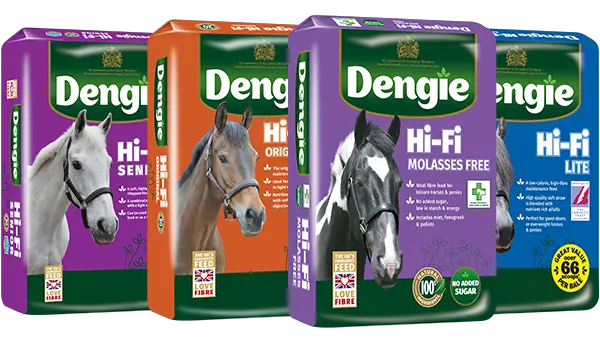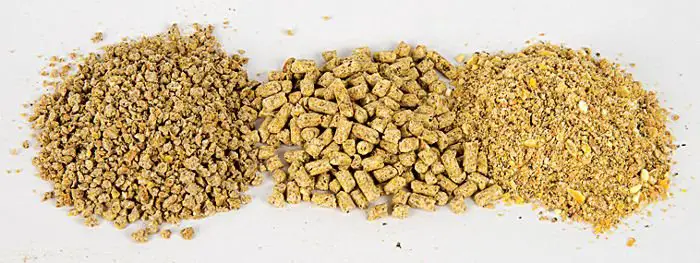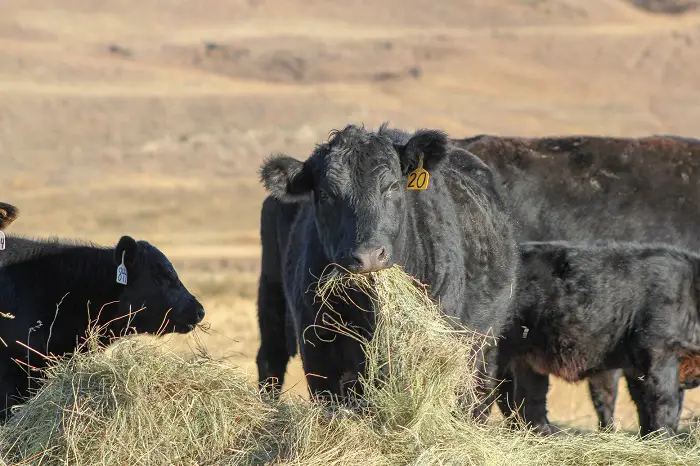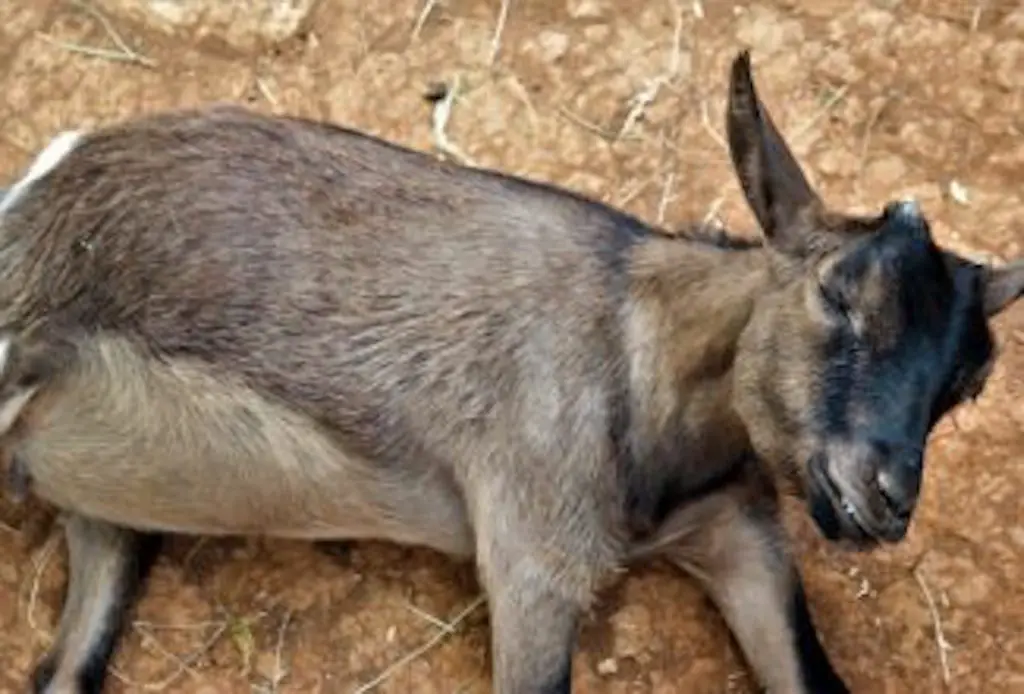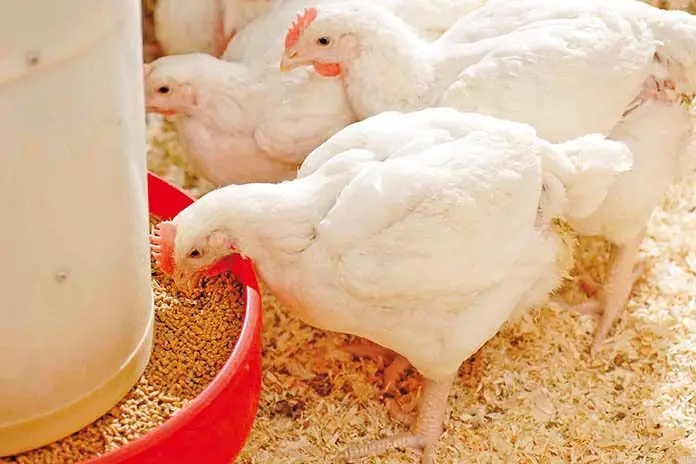Horses and sheep all have the ability to digest high-fiber forages but their digestive systems are quite different. Getting the bulk of their nutrition from grazing forages both on pastures and in the form of silages or hay sheep and horses are in that case quite similar. Sheep, however, digest their fiber mostly in the rumen while most fiber digestion in the horse occurs in the large intestine or cecum. In both the rumen and large intestine of sheep and horses respectively bacteria in a symbiotic relationship with the animal help break down the fiber releasing nutrients that are then absorbed by the animal.
Contents
Horse Feed Versus Sheep Feed
There are different classes of horse feed designed to meet different performance objectives ranging from maintenance to activities like racing or show jumping. Depending on the need a farmer can sort of match a particular horse feed to sheep feed, given that there is a wide range available.
Fiber
Most horse feed regardless of class is almost always high-fiber feed, with a minimum of 10%, as fiber is crucial for supplying essential nutrients to the horse. The microbes in the horse gut break down fiber releasing energy and vitamins, fiber also acts as a water store for the horse in times of need. In sheep, fiber plays an almost similar role so for both animals a fiber with low feed is not ideal for feeding them.
Crude Protein
Sheep requirements for protein are also not very different from horses depending on the age being fed but will range from 9-18%. There is a lot of horse feeds with similar protein content which can be fed to sheep. So with some research, it’s possible to find a horse feed that can meet the protein requirement for sheep.
Energy
The energy content of sheep and horses is roughly the same at an average of 10Mj/Kg depending on the feed. Energy is essential for all bodily processes so if a horse feed with similar energy and protein content to sheep feed is found it can ideally be fed to sheep.
Macro Nutrients
Most macronutrients like calcium and phosphorus will have similar specifications for both horse and sheep feed for example phosphorus will average 0.5% for both diets. However, regards macronutrients, vitamins, and additives careful assessment needs to be done to see if there are some that can be deficient or in excess as both cases have an impact on the performance and health of the sheep.
Common Ingredients
As noted above and from common knowledge horses and sheep mostly feed on green or grass hay to meet their nutrient requirements. Grass hay is the most common forage that is included in both sheep and horse feed supplying the bulk of fiber needed by the animals. Other common ingredients are
- Soya bean meal
- alfalfa hay,
- wheat straw,
- rice straw,
- Oat forage and straw
- oats grain,
- barley grain
- Grain processing by-products
- Brewers wastes
- Molasses
Urea is a controversial ingredient that can be found in horse feeds, although it is not lethal to sheep, in small amounts it is actually a good protein source for the rumen bacteria. Horses are not as sensitive to urea as sheep and any excess will lead to urea poisoning in sheep.
Presentation
Both sheep and horse feed can be in mash or pellet form, with pelleted horse feed mainly tailored for performance feeds just like in sheep feed. Animals are literally creatures of habit and will most likely eat something that is familiar to them. So when pelleted horse feed is presented to sheep and because it shares almost all the same ingredients sheep will readily eat the horse feed.
Constraints
Although sheep can essentially eat horse feed it is very difficult to match the exact needs of the sheep from feeding horse feed as the feeds will not exactly match like for like. Horses are supplemented with copper to aid in essential processes in the horses’ metabolism however excess copper in sheep causes toxicity. Sheep accumulate copper in their livers and any dietary excess or anything that damages the liver causes toxicity, characterized by depression, lethargy, yellow gums, and even death.
Can Sheep Eat Kale?
Kale is part of the brassica family of vegetables, together with cabbages the most common members of this family, and have been used for many centuries to feed animals on pastures. Kale is very high-yielding, frost resistant, and nutritive for sheep feed, and in countries like Australia, it is an integral part of the feeding systems for sheep. In colder regions of the world, it is the best winter feed for sheep, as grass tends to die back in winter leading to reduced feed supply.
Can Sheep Eat Barley?
Barley is a highly nutritive grain with high energy and fiber which makes it ideal for feeding sheep. Sheep being ruminants require a healthy amount of fiber for normal digestive function and barley has about 6% coupled with over 60% starch which is good for sustaining a healthy rumen and digestion. Barley can be used for maintaining and fattening sheep but should be fed in moderate amounts to avoid bloating and acidosis which can be lethal to sheep.
Conclusion
Sheep can eat horse feed, however, horse feed is specially designed for horses’ digestive system where fiber is digested in the large intestine unlike in sheep where this occurs in the rumen. Although common nutrients can be matched like crude protein and fiber the sources supplying these can be different leading to sub-par performance as not all fiber sources are digested the same. Some additives like copper in horse feed can be lethal to some breeds of sheep hence care should be taken when sheep are fed horse feed. Horse feed can be fed to sheep but not as a performance feed as it is very difficult to match the exact requirements of high-performance sheep, for example during fattening sheep, from feed designed for another animal. As a side note, it is not advisable to feed horses sheep feed as it can contain growth promoters that are lethal to horses.
